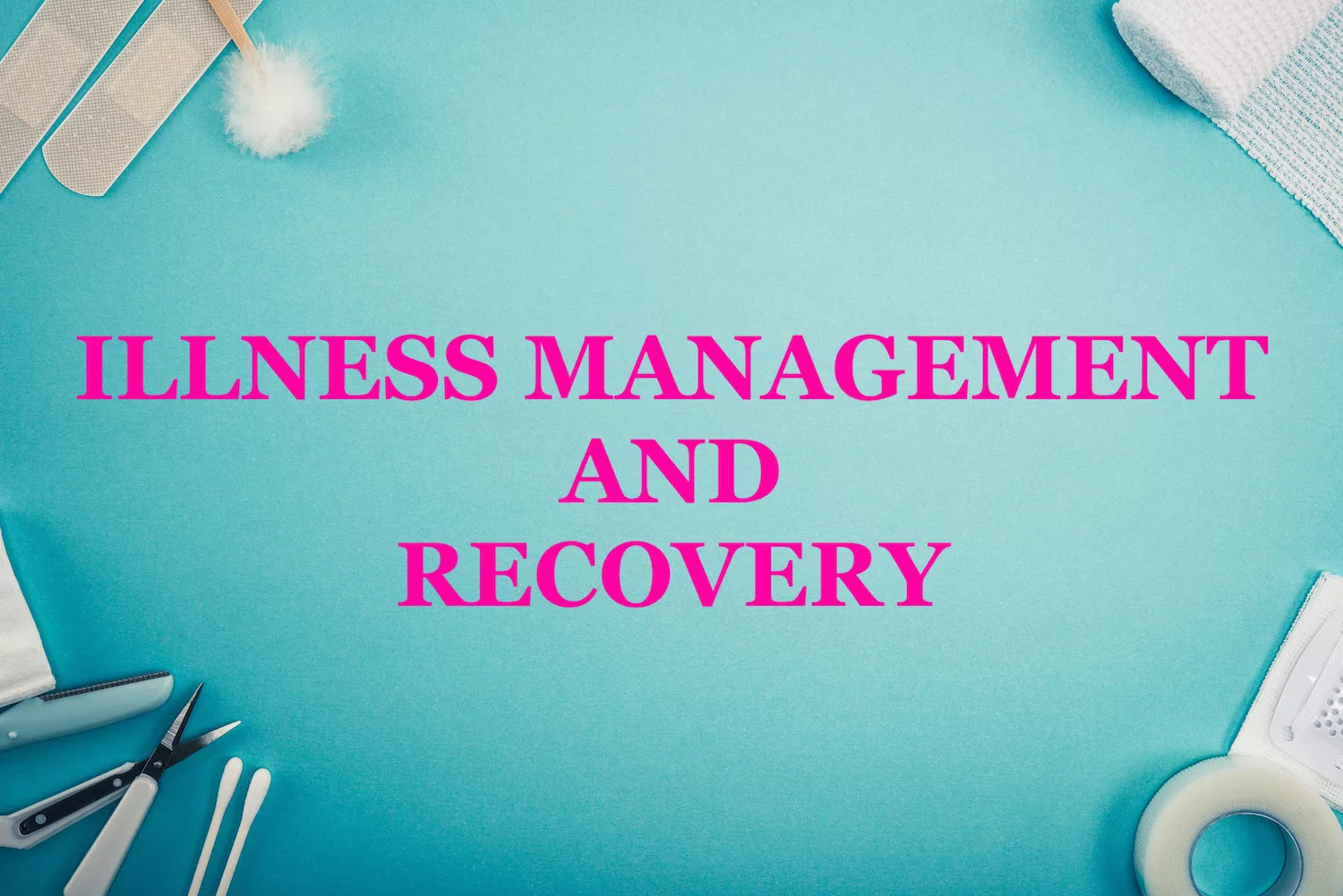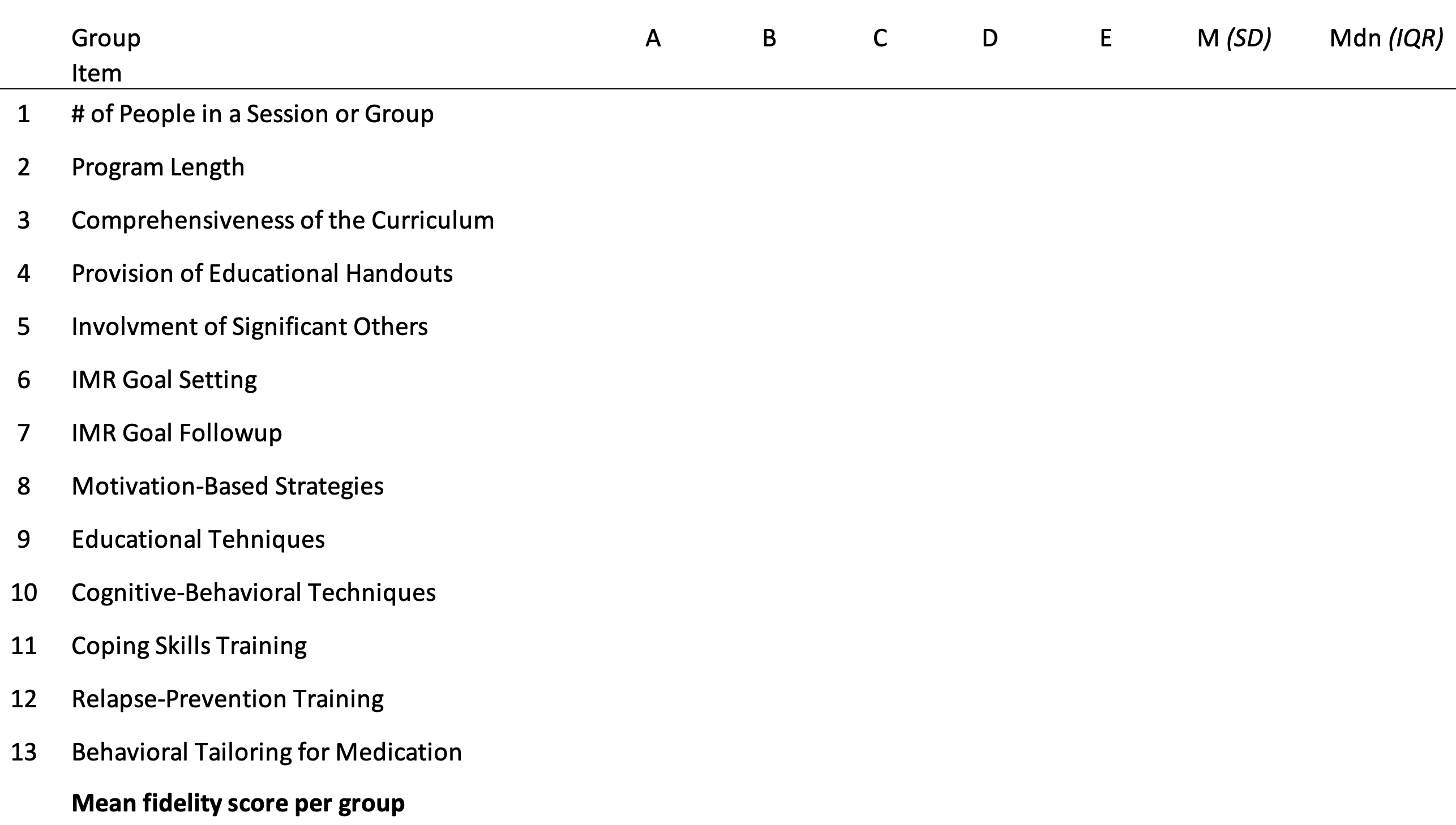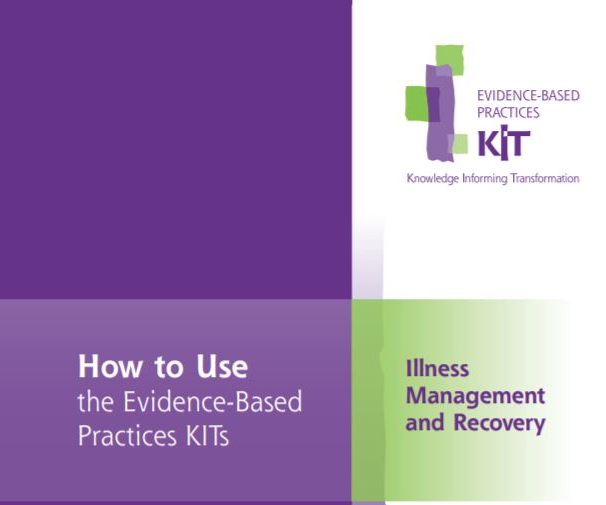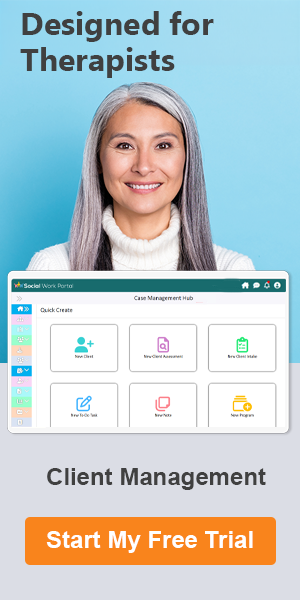2024 Guide – Illness Management and Recovery Manual, Program, and Handouts
Best 2024 Guide on Illness Management and Recovery Program
Mental illness is a growing concern in the United States, affecting millions of people each year. The National Institute of Mental Health (NIMH) estimates that one in six adults in the US experiences a mental illness in any given year.
In this Social Work Portal Guide, we will delve into the various aspects of Illness Management and Recovery topics, including best practices, Illness Management and Recovery worksheets, handouts, and much more!
By providing a comprehensive overview of the IMR Illness Management and Recovery, our goal is to empower you and other mental health professionals and social workers with the knowledge and tools they need to help their clients achieve the best possible outcomes.

2024 Guide on Illness Management and Recovery (IMR)
Depression, anxiety, and bipolar disorder can have a profound impact on a person’s daily life, relationships, and overall well-being. However, with the right support from social workers, mental health professionals, and a variety of treatments, it is possible to manage symptoms and work toward recovery.
That’s where Illness Management and Recovery (IMR) comes in.
Let’s jump right into it!
See Also: Private Psychotherapy Practice Guide
Would you like to share feedback on IMR Illness Management and Recovery? Is there any Illness Management and Recovery workbook PDF that has provided great value to your clients that we can include in this guide for other metal health professionals to leverage? If so, contact the Social Work Portal Team.
Table of Contents: IMR Illness Management and Recovery Guide
Keep on scrolling down this page to read each section or click any link below to go directly to that section.
- Introduction | What is Illness Management and Recovery?
- IMR Evaluation | Primary Goal of the IMR Fidelity Scale
- IMR Manual | Illness Management and Recovery Topics
- Illness Management and Recovery Handouts
- Illness Management and Recovery Workbook and Worksheets
- Illness Management and Recovery Activities
- Conclusion | 2024 IMR Guide
- FAQ | Illness Management and Recovery Topics
Don’t Miss: How to Start a Private Practice
Would you like to share feedback on what is Illness Management and Recovery? Is there an Illness Management and Recovery PDF that has provided great value to your agency that we can include in this guide for other mental health professionals to leverage? If so, contact the Social Work Portal Team.
Introduction to Illness Management and Recovery Program | What is Illness Management and Recovery?
To best introduce you to illness management recovery, we will start by explaining what is Illness Management and Recovery.
Illness Management and Recovery (IMR) is an evidence-based, recovery-oriented approach to treating serious mental illnesses such as schizophrenia, bipolar disorder, addictions, and major depression.
There are 4 main variations of Illness Management and Recovery:
- “Traditional” Illness Management and Recovery (IMR)
- Enhanced Illness Management and Recovery (E-IMR)
- Integrated Illness Management and Recovery (I-IMR)
- Vocational Illness Management and Recovery (V-IMR)
Unlike some more traditional approaches that focus on symptom control, the Illness Management Recovery program recognizes the importance of individual goals and aspirations.
IMR Illness Management and Recovery also recognizes that mental illness is a complex and dynamic condition that can change over time.
Therefore, Illness Management and Recovery program encourages individuals to be active participants in their own care, taking a proactive role in managing their symptoms and working with mental health providers to find the best treatment options.
This is where our All-in-One Client and Case Management tool can be of tremendous value.
Take your illness management and recovery therapy to the next level with our all-in-one software. Sign up for Case Mgt Hub today and experience the benefits of easy reporting, assessments, intakes, case notes, tasks, letter templates, and seamless client and staff management.
The main goals of Illness Management and Recovery (IMR) are to:
- Learn about mental illnesses and approaches for treatment
- Understand the illness (symptoms, causes, outcomes, etc.)
- Empower individuals with severe mental illness to take an active role in managing their illness
- Improve the quality of life
- Reduce hospitalization
- Enhance recovery
- Improve communication and social skills
The Illness Management and Recovery program generally lasts between 3 and 10 months of either weekly or biweekly sessions – depending on whether the illness management recovery is delivered in 1-on-1 sessions or a group setting.
In order for mental health practitioners to deliver the best IMR services to their clients, proper Illness Management and Recovery training is essential.
Related: Counselling Practice Guide
Illness Management and Recovery Program Evaluation | Primary Goal of the IMR Fidelity Scale
Before providing any Illness Management and Recovery services, it is essential for agencies and mental health providers to conduct a process assessment.
There are two tools that have been developed to monitor how Illness Management and Recovery program and services are being provided:
- IMR Fidelity Scale; and
- General Organizational Index
Both tools can be administered simultaneously.
IMR Fidelity scale has 13 program-specific items that are used to monitor and evaluate whether the Illness Management and Recovery program is evidence-based as it is meant to be.
The primary goal of the IMR Fidelity Scale is to measure the extent to which the Illness Management and Recovery program is being implemented consistently and accurately.

Example of IMR Fidelity Scale – Primary Goal of the IMR Fidelity Scale
Overall, the primary goal of the IMR Fidelity Scale is ensuring the implementation of the illness management recovery in a consistent and accurate manner, promoting recovery, and enhancing the overall quality of services provided to individuals with severe mental illness.
While fidelity scales are specific to each evidence-based approach, the General Organizational Index is meant to be used when implementing any evidence-based practice.
We have to emphasize that in order for the illness management recovery program to be successful, all mental health practitioners should receive Illness Management and Recovery training.
Training is most commonly delivered in person, however, these days we see a lot of Illness Management and Recovery online training options.
It is important to leverage the credibility and expertise of professionals that provide Illness Management and Recovery online training.
Ready to take the leap into the future of therapy and mental health practice? Subscribe to All-in-One Case Management Hub today and experience the power of streamlined case management software.
Next, we will take a look at what a well-curated SAMHSA Illness Management and Recovery manual contains.
Popular Article: How to Start a Private Therapy Practice
Do you have any questions about the primary goal of the IMR Fidelity Scale? Do you have feedback on IMR Illness Management and Recovery topics or Illness Management and Recovery training? If so, contact the Social Work Portal Team.
Illness Management and Recovery Manual | Illness Management and Recovery Modules & Topics
The Illness Management and Recovery manual is a comprehensive guide that provides practical information and tools to help individuals with severe mental illness manage their illness, set personal goals, and improve their overall quality of life.
The Illness Management and Recovery manual is designed to be used in conjunction with professional treatment and can be used in individual or group therapy sessions, peer support groups, or even at home.
Substance Abuse and Mental Health Services Administration (SAMHSA) freely provides a great Illness Management and Recovery kit. Think of it as an Illness Management and Recovery workbook PDF that you can print out and use in your practice.
SAMHSA Illness Management and Recovery kit comes with 10 booklets on program development. One of the booklets of Illness Management and Recovers SAMHSA is a manual for practitioners.

Screenshot from Illness Management and Recovery SAMHSA Kit
Illness Management and Recovery SAMHSA manual is divided into 10 Illness Management and Recovery modules used by mental health practitioners around the world.
So, what are Illness Management and Recovery modules?
Illness Management and Recovery (IMR) modules are structured, evidence-based programs designed to help individuals with mental health and substance use disorders achieve and maintain recovery.
These modules typically consist of a series of educational activities and exercises that help individuals develop new skills, manage their symptoms, and increase their overall sense of well-being.
SAMHSA Illness Management and Recovery program is divided into the following Illness Management and Recovery modules:
- Recovery strategies
- Facts about mental illness
- The stress-vulnerability model and treatment strategies
- Building social support
- Using medication effectively
- Drug and alcohol use
- Reducing relapses
- Coping with stress
- Managing problems and persistent symptoms
- Getting your needs met by the mental health system
Each of these Illness Management and Recovery modules or Illness Management and Recovery topics contains different guides and handouts.
In the sections below, we will cover everything you need to know about Illness Management and Recovery handouts and worksheets.
Read More: Therapy Questions To Ask Clients
Illness Management and Recovery Handouts
Illness Management and Recovery handouts are informational materials written in simple language that provide guidance and support for individuals living with severe mental illness, chronic conditions, or those that are recovering from an illness.
These handouts can come in the form of brochures, flyers, or Illness Management and Recovery worksheets.
Illness Management and Recovery handouts cover Illness Management and Recovery topics and activities revolving around self-care practices, lifestyle changes, and mental health support.
The goal of Illness Management and Recovery handouts is to empower individuals to take an active role in their health and well-being and provide them with practical, evidence-based information to help them manage their condition effectively.
Keeping these Illness Management and Recovery handouts in a visible location, such as on the fridge or in a personal health binder, can serve as a daily reminder of the importance of self-care and proactive health management.
Whether the client is just starting their journey or has been managing a condition for some time, Illness Management and Recovery worksheets and handouts can be valuable tools for staying on track and achieving health goals.
Depending on how many clients you’re managing, you may eventually want to make your life easier with our comprehensive client and case management online tools.
Discover a smarter way to manage your therapy practice and experience features like customizable assessments and intakes, case notes, tasks, reporting, and efficient client and group/couples management.
To stay on top of your clients, tasks and treatments, join All-in-One Client and Case Management Platform today.
Illness Management and Recovery SAMHSA kit is a great resource as it contains many useful Illness Management and Recovery topics and Illness Management and Recovery handouts.
Illness Management and Recovery SAMHSA:
Related: Best Generalized Anxiety Disorder (GAD) Assessment Guide
Have you used an Illness Management and Recovery workbook PDF or general information Illness Management and Recovery PDF that has provided value to you and your clients? Do you know of any enhanced illness management and recovery manual PDF? Click here to contact the Social Work Portal Team.
Benefits of Illness Management and Recovery Worksheets | Illness Management and Recovery Workbook
In addition to providing valuable information and resources, Illness Management and Recovery worksheets or Illness Management and Recovery workbook can also serve as a reminder of the steps individuals can take to maintain their health and well-being.
The benefits of using Illness Management and Recovery worksheets include:
- Skill building: Worksheets that are designed to help individuals develop new coping skills, improve communication skills, and engage in activities that promote self-care and wellness.
- Increased self-awareness: Worksheets that can help individuals reflect on their experiences and identify patterns of thinking and behavior that may be impacting their well-being.
- Improved outcomes: Studies have shown that individuals who use Illness Management and Recovery worksheets have better outcomes, including reduced symptoms, improved quality of life, and increased satisfaction with treatment.

Illness Management Recovery Tools
Examples of Illness Management and Recovery worksheets include:
- Cognitive restructuring worksheets help individuals identify and challenge negative patterns of thinking and behavior, promoting positive change and improved well-being.
- Mindfulness worksheets help individuals engage in mindfulness practices and develop a more mindful approach to life and recovery.
- Symptom management worksheets help individuals track their symptoms and develop strategies for managing them, promoting improved mental and physical health.
Illness Management and Recovery workbook and worksheets are effective and accessible tools for individuals to use in their recovery journey.
Practitioners typically create activities such as an Illness Management and Recovery PowerPoint or Illness Management and Recovery workbook PDF that they can print out and hand out to clients during sessions.
By using these worksheets or the Illness Management and Recovery workbook, individuals can develop new skills, increase self-awareness, and track their progress in a structured and interactive manner.
Another useful tool for keeping track of your clients’ progress is our All-in-One Case Management Toolkit that’s made for counselors, therapists, psychologists, and other mental health practitioners.
Transform your practice and subscribe to SWP Case Management Hub – see how our intuitive platform can save you time, streamline your workflow, and enhance the care you provide to your clients.
Don’t Miss: Depression Questionnaire and Scoring Guide
Have you used an Illness Management and Recovery workbook PDF or Illness Management and Recovery PowerPoint that has provided value to your clients? Click here to contact the Social Work Portal Team.
Illness Management and Recovery Activities
Illness Management and Recovery activities are an important aspect of the IMR recovery process for individuals living with mental health and substance use disorders.
Apart from individual IMR recovery activities, there are also Illness Management and Recovery group activities.
Group activities provide a supportive and encouraging environment for individuals to share their experiences, learn from one another, and build meaningful connections. They are also a great way for individuals to develop new skills, practice self-care, and have fun in a safe and accepting environment.
Some of the benefits of participating in Illness Management and Recovery group activities include:
- Opportunities for socialization and building supportive relationships: Group activities provide a space for individuals to connect with others who are facing similar challenges, creating a sense of community, and reducing feelings of isolation and loneliness.
- Skill-building and self-care practices: Group activities can help individuals develop new coping skills, improve communication skills, and engage in activities that promote self-care and wellness.
- Improved self-esteem and confidence: By participating in group activities, individuals can build confidence and self-esteem as they learn new skills, connect with others, and experience positive outcomes.
Discover the benefits of our Client & Case Management Software for Mental Health Professionals

Examples of Illness Management and Recovery group activities include:
- Art therapy: Using art as a form of self-expression and therapy, individuals can explore their emotions and gain a deeper understanding of their experiences.
- Music therapy: Music therapy in mental health for illness management and recovery can be used as a complementary intervention to support individuals with severe mental illness in their recovery process.
Music therapy in mental health for illness management and recovery can include listening to music, singing, playing musical instruments, composing, or even just moving to the rhythm. These activities can have a positive impact on a person’s emotional state, cognitive functioning, and physical well-being, which can be beneficial for those experiencing symptoms of mental illness
- Exercise and wellness groups: Engaging in physical activity can help improve mood and overall mental and physical health. Group activities such as yoga or hiking can provide an opportunity for individuals to connect with others and engage in self-care practices.
- Support groups: Support groups provide a safe and confidential environment for individuals to share their experiences, receive support and encouragement, learn, and discuss Illness Management and Recovery topics with others.
By participating in Illness Management and Recovery group activities, individuals can build a stronger sense of community, develop new skills, and engage in practices that promote recovery and overall well-being.
Popular Article: Tools for Anxiety, Depression, OCD, PHQ, and GAD
Do you have any questions about music therapy in mental health for Illness Management and Recovery or Illness Management and Recovery group activities in general? Click here to contact the Social Work Portal Team.
Illness Management and Recovery Scale for Goals Tracking | IMR Recovery Goals
The use of an Illness Management and Recovery scale is an important component in the process of tracking goals in Illness Management and Recovery.
It provides a standardized and objective way to measure an individual’s progress in their recovery journey and track changes over time.
By using an Illness Management and Recovery scale, healthcare providers can:
- Assess the client’s severity of symptoms and level of functioning in daily life
- Identify areas where an individual may need additional support or treatment
- Monitor progress and make evidence-based decisions about care
- Develop individualized care plans and set goals for recovery
The Illness Management and Recovery scale for goals tracking can also be used to involve individuals in their own recovery process by allowing them to see their progress and track their own improvement. This can help build motivation and increase engagement in treatment and support.
By using an Illness Management and Recovery scale, healthcare providers and individuals can work together to understand the individual’s recovery goals and process, and make informed decisions about their care and support.
This collaborative approach to care is essential for a successful outcome in Illness Management and Recovery.
Experience the ease of collaborative team approach, case notes, assessments, intakes, reporting, and client and staff management all in one platform.
Sign up for All-in-One Case Management toolkit for mental health professionals
Note: Content on socialworkportal.com Social Work Portal website is copyrighted.
Disclaimer: Content on this Social Work Portal (SWP) website is provided for educational and informational purposes only and does not constitute providing medical advice or professional services. The information provided should not be used for diagnosing or treating a health problem or disease, and those seeking personal medical advice should consult with... Read our full disclaimer here: Social Work Portal Disclaimer.


See Also: Best Social Worker Guide for Mental Health
Conclusion | 2024 IMR Illness Management and Recovery Guide
Now that we have covered everything that social workers and mental health practitioners need to know about the IMR Illness Management manual, topic and modules, handouts, and goals – the next step is on you.
Before jumping into implementing and running an IMR recovery program, your agency or organization first must conduct a process assessment to ensure that you are ready to provide IMR and that your clients are receiving the best possible care.
The best way to work towards providing this program in your agency or organization is to review SAMHSA Illness Management and Recovery PDF manual as it includes all the instructions and handouts needed.
If after reading this 2024 Illness Management and Recovery guide, you still have some questions, do not hesitate to reach out to the Social Work Portal team – we are always here for you.
Related: Social Work Administrator Guide
Do you have feedback on IMR Illness Management and Recovery? Do you know of any Illness Management and Recovery PDF or Enhanced Illness Management and Recovery Manual PDF that you would like to share? If so, contact the Social Work Portal Team.
FAQ | Illness Management and Recovery Topics
What is Illness Management and Recovery?
Illness Management and Recovery (IMR) is an evidence-based, recovery-oriented approach to treating serious mental illnesses such as schizophrenia, bipolar disorder, addictions, and major depression.
What are the main variations of Illness Management and Recovery?
There are 4 main variations of IMR:
•“Traditional” Illness Management and Recovery (IMR)
•Enhanced Illness Management and Recovery (E-IMR)
•Integrated Illness Management and Recovery (I-IMR)
•Vocational Illness Management and Recovery (V-IMR)
What is the SAMHSA Illness Management and Recovery PDF kit?
It is an Illness Management and Recovery PDF kit provided by The Substance Abuse and Mental Health Services Administration. It contains 10 Illness Management and Recovery PDF booklets that are essential in evaluating, establishing, and executing a successful Illness Management and Recovery program.
What is Illness Management and Recovery training?
Illness Management and Recovery training is a comprehensive program designed to provide mental health professionals with the knowledge and skills needed to effectively implement the IMR program in their work with individuals with severe mental illness.
Note: Content on Social Works socialworkportal.com website is copyrighted.
Social Work Portal Disclaimer:
Social Work Portal is not a social work agency and we do not refer social workers. This web site is provided for educational and informational purposes only and does not constitute providing medical advice or professional services. The information provided should not be used for diagnosing or treating a health problem or disease, and those seeking personal medical advice should consult with ...
Read our full disclaimer here: Social Work Portal Disclaimer.
Image sources: Stock.adobe.com






